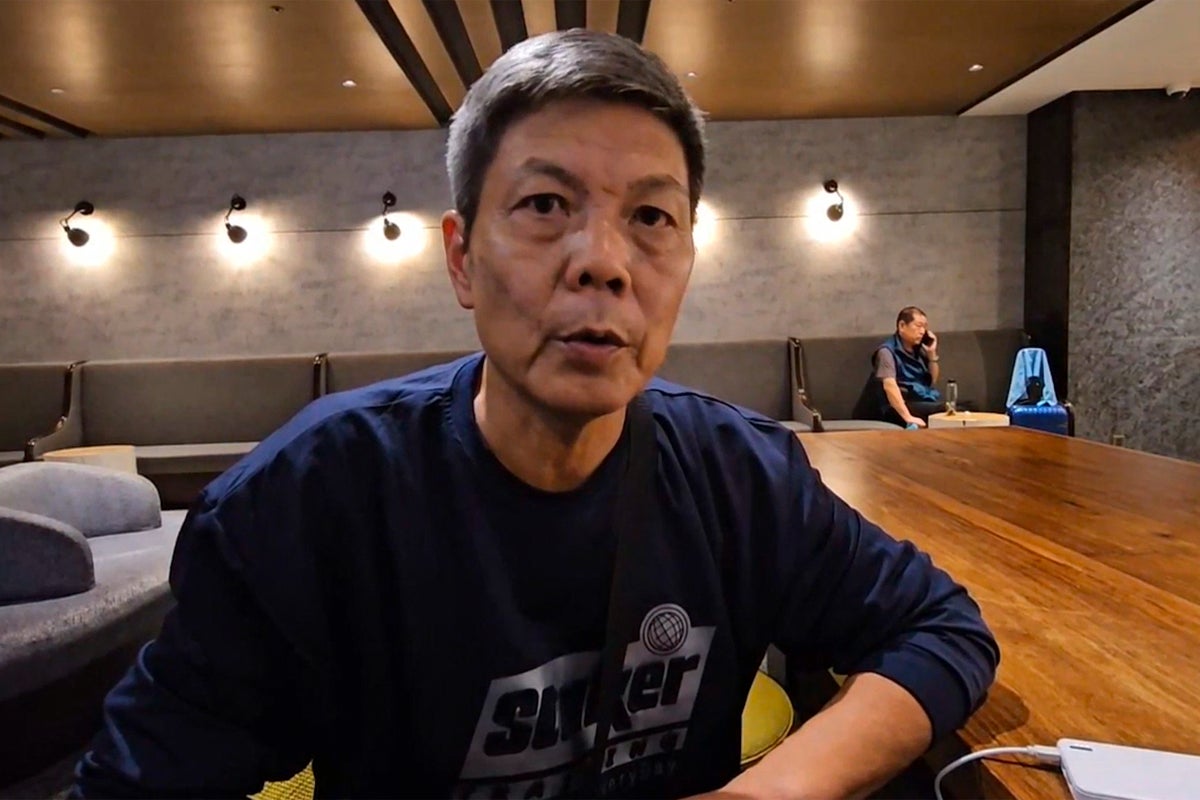
A Chinese dissident known for regularly commemorating the 1989 crackdown on pro-democracy protesters in Beijing's Tiananmen Square fled to Taiwan on Friday and pleaded for help in seeking asylum in the United States or Canada.
In a video he posted on X, formerly known as Twitter, Chen Siming said he was in the transit area at Taoyuan International Airport to escape Chinese political persecution.
“The Chinese police’s stability maintanece methods directed towards me were becoming more and more cruel and crazy," he said in his post. "They detained me at will without following legal procedures, taking my cellphone and even giving me a psychiatric evaluation. I can no longer continue to accept the ravaging of my personal dignity, the trampling of my honor and the threat to my body.“
It is unclear how Chen was able to travel to Taiwan, but he told The Associated Press that he had left China on July 22. Taiwan is a self-governing island that is claimed by China.
Chen said starting in 2017, police had taken him into detention every year, primarily for his annual commemorations of the June 4 crackdown in Beijing's Tiananmen Square. The shortest was a week in length, and 15 days for the longer stretches, he said.
In China, public memorials in honor of the protesters who were killed in the crackdown are likely to attract police attention, detention or arrest.
In May, authorities in China’s southern Hunan province detained Chen after he made a posting on social media commemorating the crackdown. He described being harassed by state security police over the years during “sensitive periods” around the anniversary date.
The rights group Chinese Human Rights Defenders said he was believed to have been held in a detention center in Zhuzhou, in Hunan, shortly after.
The group urged Taiwan to help Chen seek asylum. “If Chen Siming is returned to China, he faces an almost certain risk of detention, torture and other ill-treatment, and an unfair trial," said William Nee, the group's research and advocacy coordinator.
What happens next to Chen will be complicated, as Taiwan does not have a formal refugee policy. It has also become increasingly wary of security risks posed by China and has denied permanent residency to some people seeking to move from Hong Kong because of Beijing's increasing control over the city.
Chen said he is aware of the risks, but preferred Taiwan over escaping to Thailand or Laos, other countries that Chinese dissidents often flee to.
“I entered Taiwan illegally, but Taiwan is a democratic and free society, a country. Even if I am sitting in jail here, I would feel safe," Chen said.







